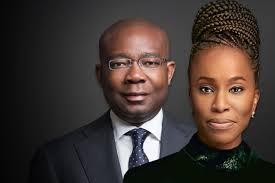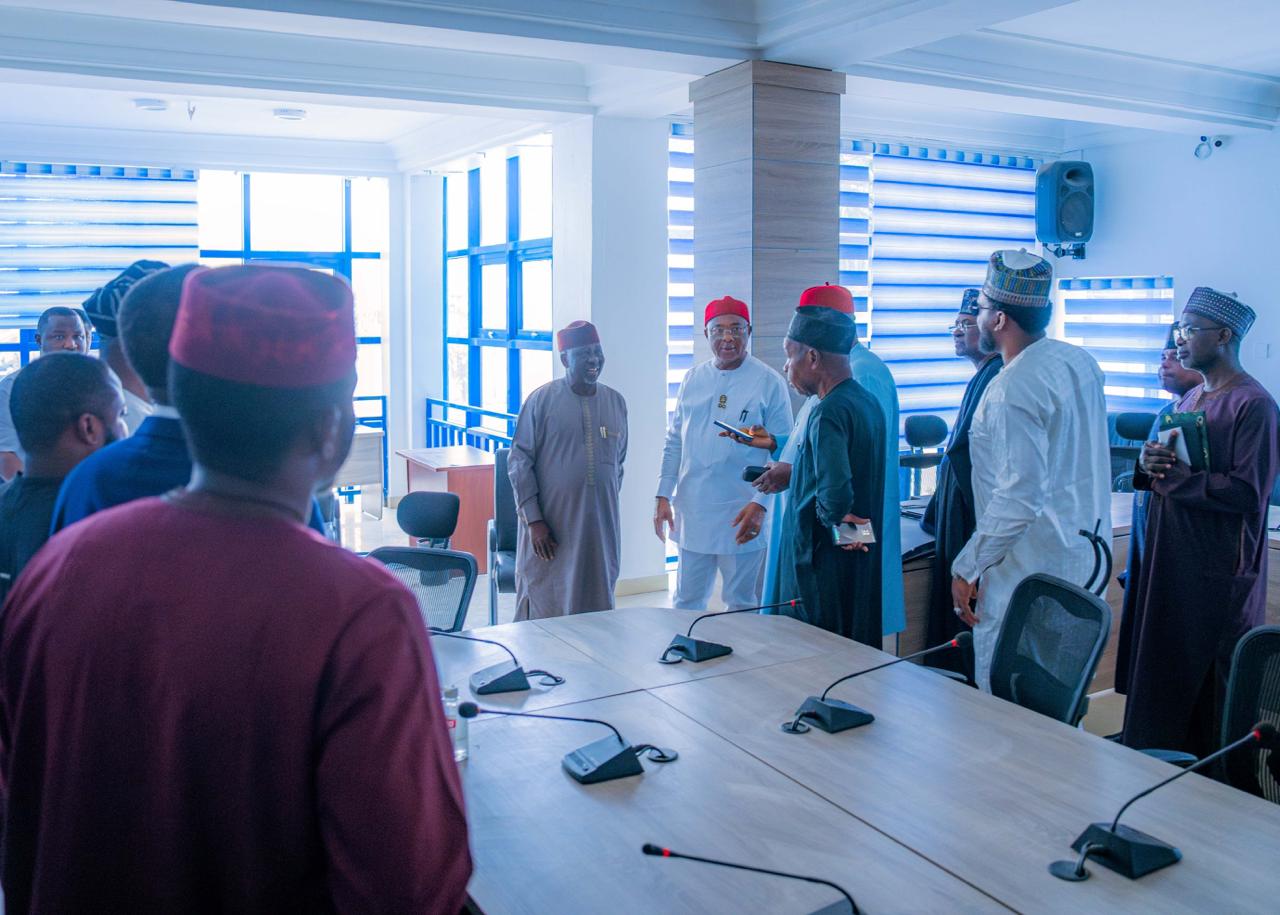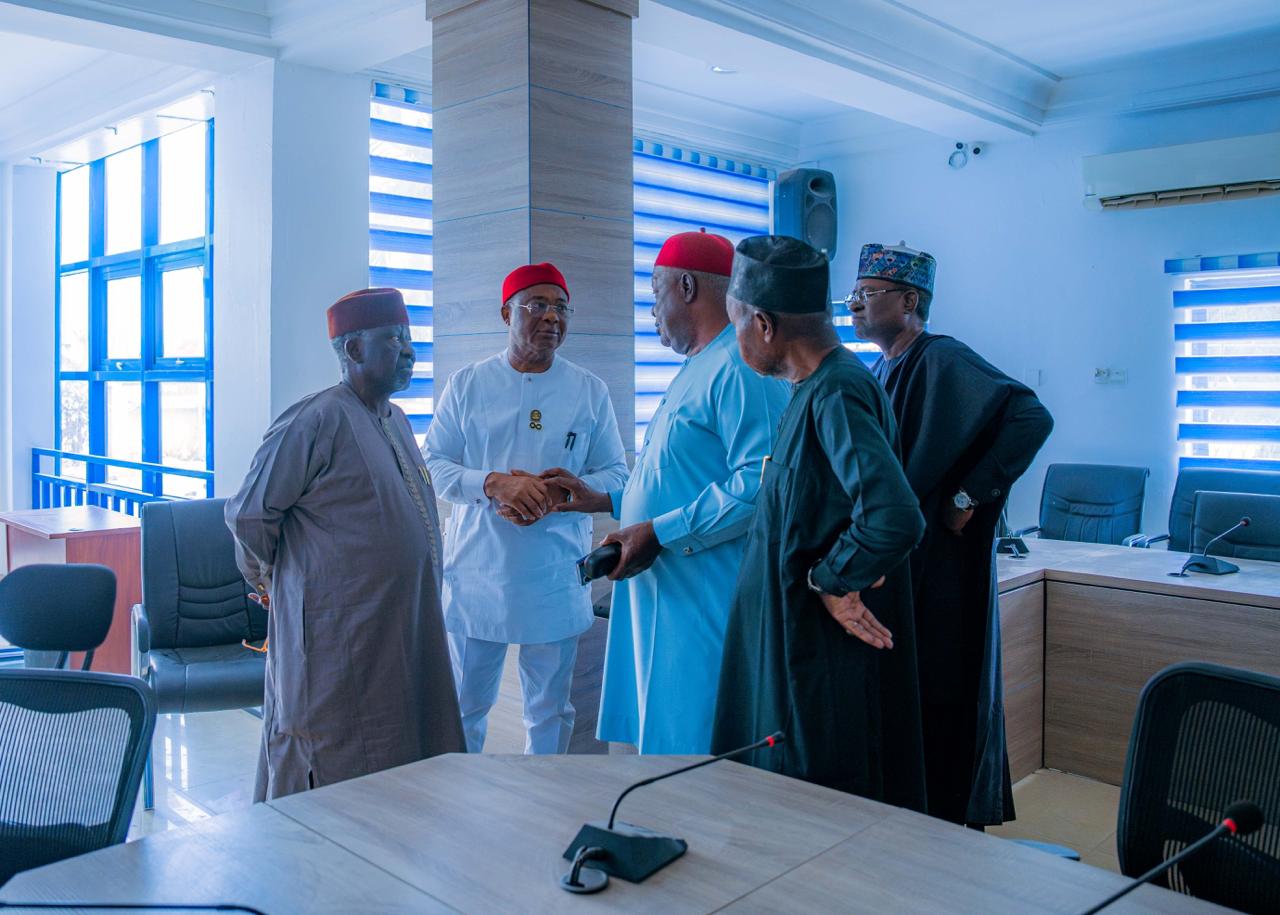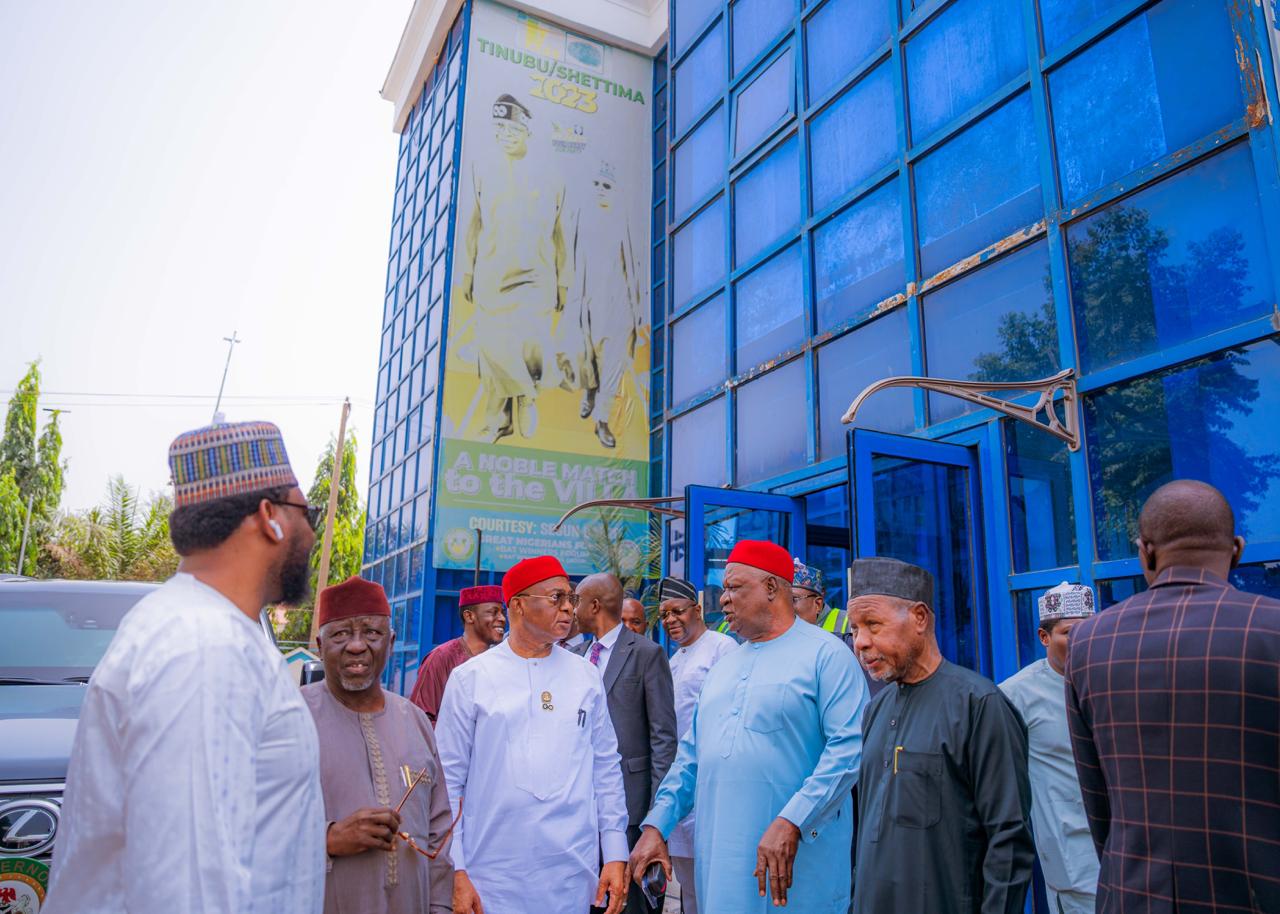Business
‘No Judge or members of his/her family must receive any gift from other arms of Government’ – NJC

As part of measures to enhance the independence of the judiciary, the National Judicial Council, NJC, has barred judges and other court staff from accepting gifts from other arms of government. The move is aimed at enhancing the independence of the judiciary, as it also outlawed any form of lobbying of other arms of government by the judiciary or any of its institutions.
The new measures are also set out to curb corruption and other unethical conduct among judicial officers and other court staff, especially against the backdrop of recent raiding of homes and arrest of some Supreme and High Court judges in the country. These form part of the provisions in a new National Judicial Policy, NJP, to be launched in Abuja today by the NJC. The measures, which are part of a new NJP to be launched in Abuja today, seeks to merge and improve on the existing NJC NJP and a similar policy by the National Judicial Institute, NJI.
The existing Code of Conduct for judicial officers provides that “a judge and members of his/her family shall neither ask for nor accept any gift, bequest, favour, or loan on account of anything done or omitted to be done by him in the discharge of his duties. “But, the provision in the new policy particularly bars judges and other court staff from accepting gifts from other arms of government, and made compliance mandatory.” Section 2(3)(2) of the new policy states: “The Code of Conduct for Judicial Officers and Code of Conduct for Court Employees, with the amendment discouraging acceptance of gifts from other arms of government, should be such as would be adequate. Compliance with their provisions shall be mandatory.”
Further on its relationship with other arms of government, it is prescribed that “the judiciary shall not resort to lobbying in ensuring that the legislature and the executive perform their constitutional responsibilities. “All arms of government should respect the doctrine of Separation of Powers as enshrined in the Constitution.” The policy also introduced measures to further keep complaints against judges and other court staff from the media and public domain. Provisions in this regard are contained in section 2(2)(4) to 2(2)(9).
It states further: “It shall be the policy of the judiciary on complaints of misconduct against judicial officers or employees of the judiciary shall not be leaked or published in the media. “Where complaints on allegations against judicial officers and court employees are submitted for investigation, the complainant or complainants shall be made to give an undertaking not to do anything to prejudice investigation or actions that may be taken. “The institutions of the judiciary concerned with investigation or/and implementation of decisions taken on such complaints shall be obliged to cease further action where such complaints are leaked or discussed in the media. “Where such a leakage is occasioned after the submission of a complaint, then all investigations on the complaints shall be suspended, the leakage investigated and if such leakage is from the complainant or through other parties known to such a complainant, such a complaint should be discarded. “Where such leakage is occasioned prior to the presentation of the complaint and the source of the leakage is found to be the complainant or through other parties known to and connected with the complainant, then such complaint shall not be accepted, upon submission, by the appropriate disciplinary body. “On conclusion of investiga-tion, the disciplinary bodies may allow public disclosure of their findings, subject to following the proper channels.”
Business
Aig-Imoukhuede Foundation opens applications for 6th Cohort Programme

Aig-Imoukhuede Foundation opens applications for 6th Cohort Programme
The Aig-Imoukhuede Foundation is pleased to announce that applications are now open for the sixth cohort of its transformative AIG Public Leaders Programme (AIG PLP).
This flagship six-month executive education initiative, delivered by the University of Oxford’s Blavatnik School of Government, is designed to empower high-potential public sector leaders across Africa with the tools, networks, and strategic insight required to deliver meaningful reform across African public institutions.
Applications are now open to qualified public servants from all English-speaking African countries and will close on Sunday, April 12, 2026. The programme commences in October 2026.
Since its inception in 2021, the AIG PLP has built a formidable reputation for creating tangible impact.
Alumni from the programme have gone on to design and implement more than 230 reform projects within their ministries, departments, and agencies across Africa.
An impact survey revealed that 62% of alumni have earned promotions or assumed expanded leadership roles post-training, demonstrating the programme’s direct effect on career advancement and institutional influence.
“Across Africa, the complexity of public sector challenges demands more than good intentions. It requires reformers who understand systems, can navigate institutional realities, and are equipped to implement sustainable change.
The AIG PLP is designed to meet this need,” said Ofovwe Aig-Imoukhuede, Executive Vice-Chair of the Aig-Imoukhuede Foundation.
As part of the programme, a PLP alumna, Titilola Vivour-Adeniyi, Executive Secretary of Lagos State DSVA, launched a secure self-reporting tool that allows survivors of domestic and sexual abuse safely document incidents and preserve evidence.
Survivors are already accessing support, and the tool ensures that crucial proof is protected until justice can be sought. This is one of over 230 impactful reform projects being implemented across sectors as diverse as healthcare, finance, agriculture, and education.
We are seeing proof every day that investing in the capacity and leadership potential of people, delivers the kind of transformation that policy alone cannot achieve.”
The AIG PLP is a blended learning experience that combines online sessions with an intensive residential module.
It is offered at no cost to selected participants, with the Foundation covering all costs of the programme including accommodation and feeding during the residential weeks.
Participants gain direct access to world-class faculty from the University of Oxford, and learn to tackle core public sector challenges such as: Negotiating in the public interest. Harnessing digital technology for governance.
Strengthening public organisations.
Upholding integrity in public life.
The curriculum culminates in a capstone reform project, where participants apply their new skills to a real-world challenge within their institution.
This practical component ensures that learning translates directly into actionable solutions.
Interested candidates are encouraged to apply early. For more details on the application process and to apply, please visit the Aig-Imoukhuede Foundation website.
Business
Renewed Hope Ambassadors Inspect RHA Secretariat

Renewed Hope Ambassadors Inspect RHA Secretariat
Renewed Hope Ambassadors, led by its Director-General and the Governor of Imo State, Hope Uzodinma, alongside Zonal Coordinators (NW, NC, SE), the Media & Publicity Directorate, and other key stakeholders, inspected the RHA Secretariat two days after President Bola Tinubu unveiled the Renewed Hope Ambassadors grassroots engagement drive in Abuja.
Business
Harmony Gardens’ Ibeju-Lekki Portfolio Crosses $1bn

Harmony Gardens’ Ibeju-Lekki Portfolio Crosses $1bn
Harmony Garden & Estate Development Limited has expanded its development activities across Ibeju-Lekki, pushing the projected long-term value of its estate portfolio beyond $1 billion.
Led by Chief Executive Officer Hon. Dr. Audullahi Saheed Mosadoluwa, popularly know Saheed Ibile, the company is developing seven estates within the Lekki–Ibeju corridor. Details available on Harmony Garden & Estate Development show a portfolio spanning land assets and ongoing residential construction across key growth locations.
A major component is Lekki Aviation Town, where urban living meets neighborhood charm, located near the proposed Lekki International Airport and valued internally at over $250 million. The development forms part of the company’s broader phased expansion strategy within the axis.
Other estates in the corridor tagged as the “Citadel of Joy” (Ogba-idunnu) include Granville Estate, Majestic Bay Estate, The Parliament Phase I & II, and Harmony Casa Phase I & II.
With multiple projects active, the rollout of the Ibile Traditional Mortgage System, and structured expansion underway, Harmony Garden & Estate Development Ltd continues to deepen its presence within the fast-growing Ibeju-Lekki real estate market.
-

 celebrity radar - gossips7 months ago
celebrity radar - gossips7 months agoWhy Babangida’s Hilltop Home Became Nigeria’s Political “Mecca”
-

 society5 months ago
society5 months agoReligion: Africa’s Oldest Weapon of Enslavement and the Forgotten Truth
-

 society7 months ago
society7 months agoPower is a Loan, Not a Possession: The Sacred Duty of Planting People
-

 news3 months ago
news3 months agoWHO REALLY OWNS MONIEPOINT? The $290 Million Deal That Sold Nigeria’s Top Fintech to Foreign Interests

















You must be logged in to post a comment Login